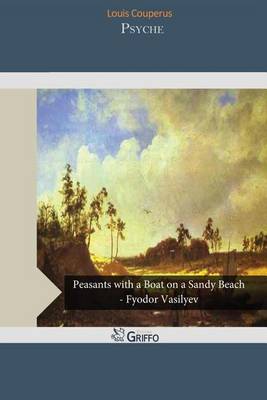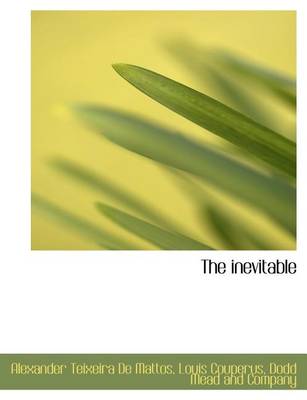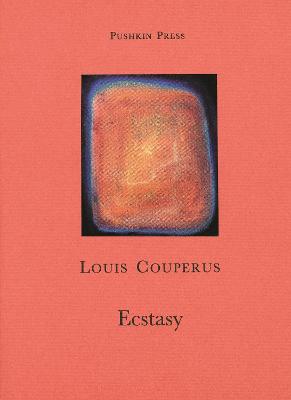Pushkin Collection
4 total works
Psyche is a modern, adult fairy tale, drenched in powerful imagery, and one of the most fascinating works to come from the pen of Louis Couperus, the Dutch Oscar Wilde and among the greatest writers ever to be born in The Netherlands.
'Couperus binds both irony and spiritual redemption. '
- The Daily Telegraph
'Couperus sympathy for the hybrid, the impure and the ambiguous gave him a peculiarly modern voice. It is extraordinary that this Dutch dandy, writing in the flowery language of fin-de-siecle decadence, should still sound so fresh.'
- Ian Buruma, The New York Times Review of BooksLouis Couperus (1863-1923), regarded as one of the foremost figures in Dutch literature, was a leading member of the Tachtigers movement. Born in the Hague, Couperus was taken by his family to the Dutch East Indies as a child, where he remained until his father's death. His other novels include Eline Vere (1889), Ecstasy (Extaze: Een boek van geluk, 1892), Inevitable (Langs lijnen van geleidelijkheid, 1900), and The Hidden Force (De Stille Kracht, 1900), all of which are available from Pushkin Press. A renowned wit, raconteur and commentator, Couperus continued to publish critically and commercially successful work until his death.
Cornelie De Retz Van Loo, a twenty- three-year-old divorcee from an upper- class Hague milieu, tries with mixed feelings to begin a new life in Italy. She meets a Dutch painter, and they move in together, flouting convention. They are happy but poor, and their financial position goes from bad to worse, until Cornelie encounters her ex-husband, and he begins to re-exert his influence over her ...
'Couperus binds both irony and spiritual redemption. '
- The Daily Telegraph
'Couperus sympathy for the hybrid, the impure and the ambiguous gave him a peculiarly modern voice. It is extraordinary that this Dutch dandy, writing in the flowery language of fin-de-siecle decadence, should still sound so fresh.'
- Ian Buruma, The New York Times Review of Books
The portrait of their unfolding affair is a masterful observation of the beauty and illogic of romantic love. (...) Only the ending,which the title foreshadows, strikes an unhappy note; Cornelie's abrupt and arbitrary fate unbalances a finely shadowed novel. &mdashClare Clark Times Literary Supplement
There are many chapters in Inevitable, aside from the concluding one, which mark the book as an exquisite example of the fictionists art. The author's touch is always delicate and sure in handling the lights and shades of thought and emotion. (...) There is not a poorly drawn character among the score or so in the book. - The New york Times Book Review
Louis Couperus (1863-1923), regarded as one of the foremost figures in Dutch literature, was a leading member of the Tachtigers movement. Born in the Hague, Couperus was taken by his family to the Dutch East Indies as a child, where he remained until his father's death. His other novels include Eline Vere (1889), Ecstasy (Extaze: Een boek van geluk, 1892), Inevitable (Langs lijnen van geleidelijkheid, 1900), and The Hidden Force (De Stille Kracht, 1900), all of which are available from Pushkin Press. A renowned wit, raconteur and commentator, Couperus continued to publish critically and commercially successful work until his death.
Ecstasy is a novel of burning passion and agonising restraint. In turn-of the-century Holland, Cecile, a beautiful high-society widow, falls in love with a notorious womanizer, but her desire must remain unspoken.
This is one of Couperus's most powerful novels. A brilliant observer of fin-de-siècle Dutch society, his works are characterised by perfect characterisation, exquisite description and a mordant wit, which brought comparisons to Oscar Wilde.
'Couperus binds both irony and spiritual redemption. '
— The Daily Telegraph
'Couperus' sympathy for the hybrid, the impure and the ambiguous gave him a peculiarly modern voice. It is extraordinary that this Dutch dandy, writing in the flowery language of fin-de-siecle decadence, should still sound so fresh.'
— Ian Buruma, The New York Times Review of Books
Louis Couperus (1863–1923), regarded as one of the foremost figures in Dutch literature, was a leading member of the Tachtigers movement. Born in the Hague, Couperus was taken by his family to the Dutch East Indies as a child, where he remained until his father's death. His other novels include Eline Vere (1889), Ecstasy (Extaze: Een boek van geluk, 1892), Inevitable (Langs lijnen van geleidelijkheid, 1900), and The Hidden Force (De Stille Kracht, 1900), all of which are available from Pushkin Press. A renowned wit, raconteur and commentator, Couperus continued to publish critically and commercially successful work until his death.



